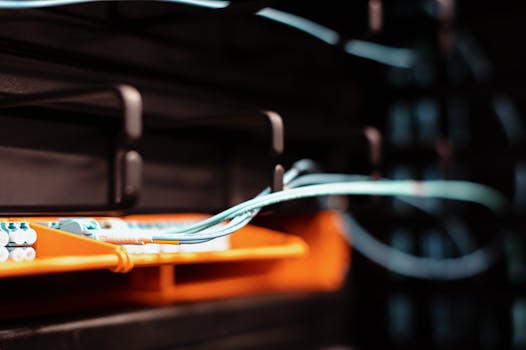The Role of Fiber Companies in Africa’s Smart City Initiatives

The Role of Fiber Companies in Africa’s Smart City Initiatives
Fiber Companies and Smart City Initiatives
The role of fiber companies in Africa’s smart city initiatives is crucial, as they provide the necessary infrastructure for connectivity and technology. With the rapid growth of urbanization in Africa, cities are facing numerous challenges, including inadequate infrastructure, poor transportation systems, and inefficient public services. To address these challenges, many African cities are turning to smart city initiatives, which involve the use of technology and data to improve the quality of life for citizens. Fiber companies are at the forefront of this initiative, providing the high-speed internet connectivity that is necessary for smart city applications.
Fiber companies in Africa are investing heavily in the deployment of fiber optic cables, which are essential for providing high-speed internet connectivity. These cables have the capacity to transmit large amounts of data at high speeds, making them ideal for smart city applications such as smart traffic management, smart energy management, and smart public safety. With the help of fiber companies, African cities can now deploy smart city applications that improve the efficiency of public services, enhance the quality of life for citizens, and promote economic growth.
The Impact of Fiber Companies on Africa’s Development
The impact of fiber companies on Africa’s development cannot be overstated. By providing high-speed internet connectivity, fiber companies are enabling African cities to participate in the global digital economy. This has opened up new opportunities for economic growth, as African cities can now attract foreign investment, create new jobs, and stimulate innovation. Furthermore, the deployment of fiber optic cables is also having a positive impact on education, healthcare, and other public services, as it enables the use of digital technologies to improve the delivery of these services.
In addition to the economic benefits, the deployment of fiber optic cables is also having a positive impact on the environment. By enabling the use of smart city applications, fiber companies are helping African cities to reduce their carbon footprint, improve energy efficiency, and promote sustainable development. For example, smart traffic management systems can help to reduce traffic congestion, which in turn can help to reduce air pollution and promote a cleaner environment.
Challenges Facing Fiber Companies in Africa
Despite the many benefits of fiber companies in Africa, there are also several challenges that need to be addressed. One of the major challenges is the lack of infrastructure in many African cities, which can make it difficult and expensive to deploy fiber optic cables. Additionally, the cost of deploying fiber optic cables can be prohibitively expensive for many African cities, which can limit the availability of high-speed internet connectivity.
Another challenge facing fiber companies in Africa is the issue of regulatory frameworks. In many African countries, the regulatory frameworks for the deployment of fiber optic cables are either non-existent or inadequate, which can create uncertainty and unpredictability for fiber companies. Furthermore, the lack of standardization in the deployment of fiber optic cables can also create challenges for fiber companies, as it can make it difficult to ensure interoperability and compatibility between different fiber optic networks.
Conclusion
In conclusion, the role of fiber companies in Africa’s smart city initiatives is crucial, as they provide the necessary infrastructure for connectivity and technology. The impact of fiber companies on Africa’s development is significant, as they are enabling African cities to participate in the global digital economy, improve the delivery of public services, and promote sustainable development. However, there are also several challenges that need to be addressed, including the lack of infrastructure, the high cost of deploying fiber optic cables, and the issue of regulatory frameworks. By addressing these challenges, fiber companies can continue to play a vital role in Africa’s smart city initiatives and promote the development of the continent.